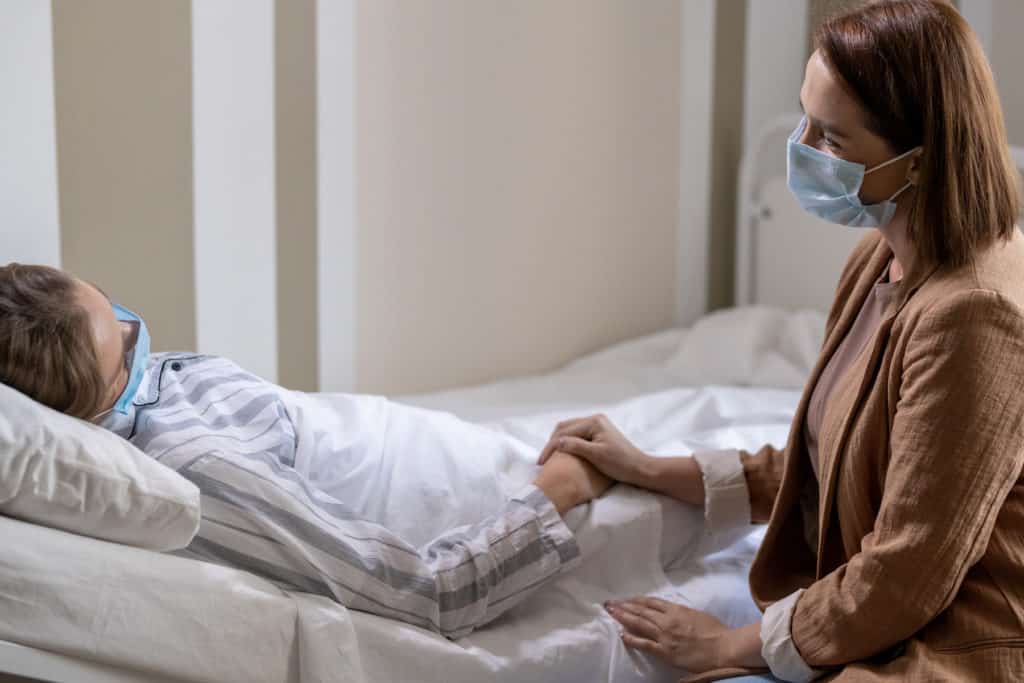Despite vaccines being approved for use, COVID-19 is still causing a pandemic, and some experts believe it will be around for quite some time. It’s a circumstance that has tested medical care at every level.
Anyone who has had to arrange hospice care, also known as palliative care, knows what an emotionally daunting, stressful process it can be. The pandemic has piled on a new set of concerns for patients and their families. The notion of having a hospice nurse come to your home might seem too risky, but it may be safer than staying in a hospital or hospice care center.
Hospice Care Coverage May Be Different
Most private insurance plans cover at least some hospice care expenses. Medicare and Medicaid also cover the expenses of hospice care. But the way coverage worked at the start of 2020 may not be how it works now.
Talk to your insurance provider to see if the pandemic has affected coverage for hospice care. Insurance providers may be open to covering the costs of in-home care as opposed to remaining in a hospital given that hospitals in some areas of the country are overwhelmed with patients.
Palliative Care at Home Could Be Best
If you are able to receive hospice care at home that could be the best decision. Research is beginning to reveal that lack of personal contact is worsening some patients’ conditions more rapidly than anticipated. With that in mind, the concern over not being able to see loved ones goes beyond being an emotional burden. It has a real impact on a person’s health.
There is also legitimate concern about how well safety protocols are adhered to in long-term care facilities and palliative care centers. There is no national standard to follow, and state regulations are across the board. At home the patient has more control over the safety protocols that nurses need to follow.
COVID-19 Outbreaks at Facilities Must Be Reported
Facilities must report cases of COVID-19. However, don’t immediately assume it signals the facility isn’t safe if it has reported cases. When the cases occurred and the number of people affected matters.
If an outbreak occurred early on in the pandemic before health protocols were put into place that’s a different circumstance from an outbreak that occurs today. And if only one or two people out of an entire facility tested positive it could actually signal that the facility has effective containment protocols in place.
Hospice Care Providers Should Be Following the Recommended Safety Protocols
Every hospice care provider, whether it’s at a facility or in-home, should be following safety protocols to minimize the risk of COVID-19 exposure. Before selecting a hospice care provider check the recommended safety protocols at leading institutions such as the following:
- Center for Disease Control (CDC)
- Centers for Medicare and Medicaid Services (CMS)
- State Health Department
- Local/County Health Departments
Ask the hospice care provider about their pandemic safety protocols. The recommendations from the institutions listed above are the bare minimum of what should be done to protect patients and healthcare workers.
Visits May Not Be Allowed
Hospice care facilities are following state and local regulations for whether or not visitors are allowed to enter. And even if visitors are allowed right now, the regulations are evolving as the pandemic progresses and policies could change. This is the biggest fear for patients and their families, which is why in-home care is the preferred option for many people during the pandemic.
Experts agree that one of the best things you can do is plan ahead to get all your affairs in order. It’s a good idea for everyone no matter their current health status. Communicating your wishes and plans with the people you are closest to will help ensure you get the care you want.





